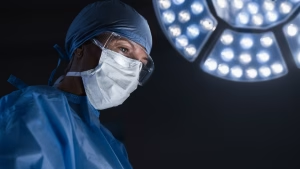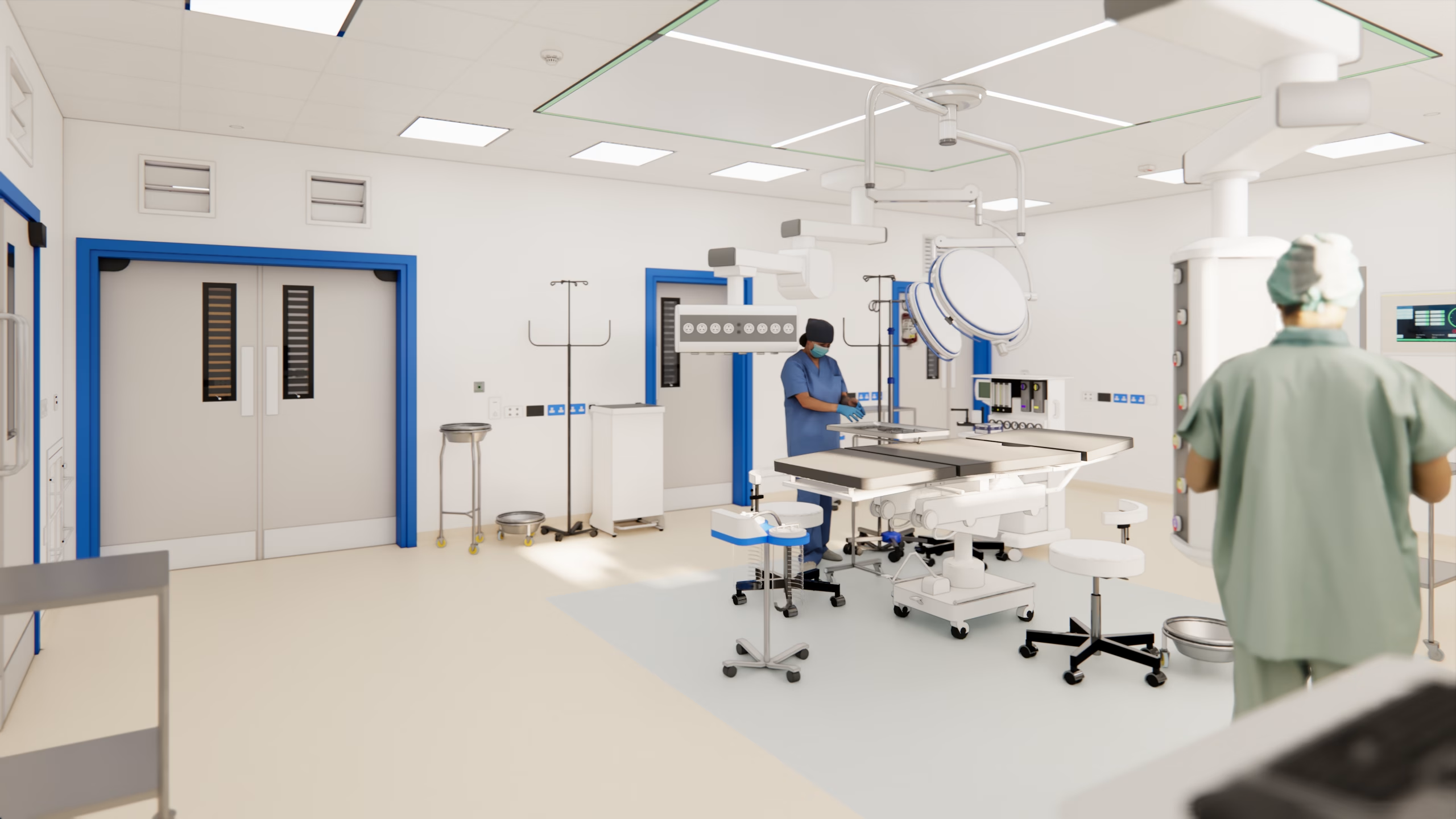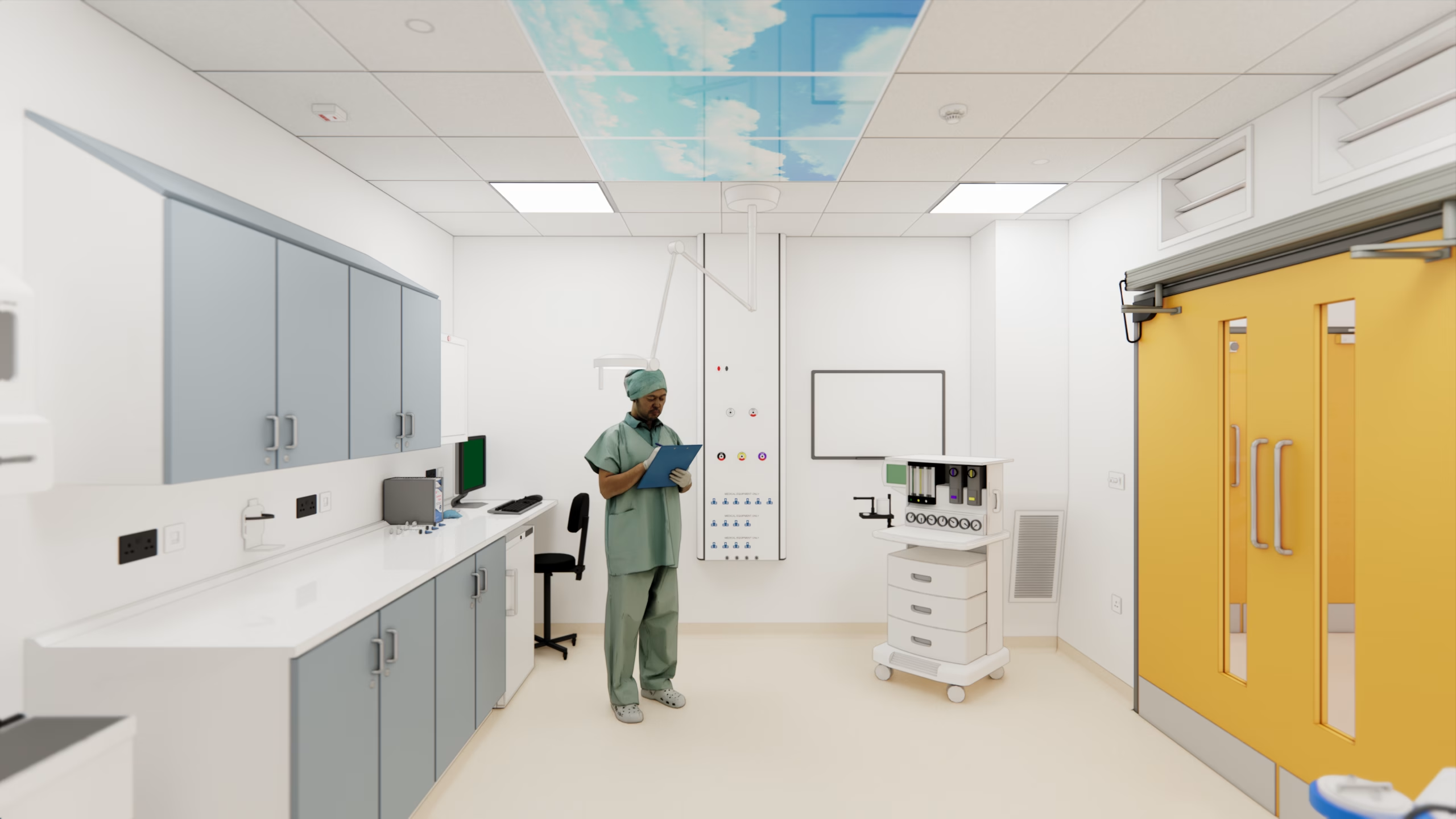
Professor Martin Elliott shares his perspective on the new On-Demand Ultraclean Twin Operating Theatre
In the midst of growing surgical backlogs and mounting pressure on NHS estates, the need for flexible, high-quality, rapidly installable clinical infrastructure has never been more urgent. The Darwin Group On-Demand® Ultraclean Twin Operating Theatre aims to address exactly these issues – offering a permanent-grade, modular facility designed to meet the most stringent clinical standards while being deployable at pace.
To explore its impact and potential, we spoke with Professor Martin Elliott, renowned paediatric cardiothoracic surgeon, Medical Director, TED talker and healthcare lecturer, who recently previewed the new On-Demand twin theatre design, developed and in construction by Darwin Group.

Q: First impressions – what stood out to you about the design?
“It’s very impressive. What struck me straight away was the quality – this doesn’t look or feel like a temporary facility. You can tell it’s been designed with surgical teams in mind.
From what I’ve seen, it’s built to permanent standards – the floor vibration, the ceiling height, and the ventilation system are all what you’d expect in a fixed hospital theatre. You could walk into this space and genuinely not know the difference between this and a permanent facility.”
Q: From a clinical perspective, what kind of procedures could this environment support?
“The facility will support a wide range of surgical activity, indeed.
I noticed you’re looking at significant orthopaedics, and potentially neurosurgery and cardiac in addition to more day-to-day procedures. They have considerable space, preparation and imaging demands, and the designs I have seen so far take these into account. But it is important to remember that these can be long operations, and people need to be able to sit down, have a proper break, maybe watch TV, have a cup of tea or piece of toast!
It’s not just about the clinical space; it’s about the whole environment and how it supports staff welfare. That’s something that often gets overlooked, but it makes a real difference to teams during long procedures.”
Q: You mentioned welfare and staff facilities – why are those so important in your view?
“It sounds simple, but it matters. A comfortable, well-equipped environment directly supports better surgical performance. Things like having access to a rest space, a beverage bay, or welfare facilities may sound small, but they’re critical during long or complex procedures.
It’s important to consider that, that’s why I was pleased to see that this didn’t just need to be a standalone operating theatre, it can be part of a surgical hub, which considers the whole patient pathway.”
Q: You mention patient pathways and patient flow – do you believe it’s mostly operating theatres that provide the bottleneck in surgical capacity?
“The problem isn’t always the operating theatre itself, it’s what happens before and after. You can have the best-equipped theatre in the world, but if patients can’t move through the system efficiently – if there aren’t enough beds or recovery spaces – then the whole pathway stalls.
That’s why I like that this design isn’t just about the theatre. It can be part of a broader surgical hub, with recovery areas and patient flow considered from the start. It’s not just a box for surgery.”

Q: How does this type of solution fit with the current NHS challenge around surgical capacity?
“We know the NHS is under pressure. Bed shortages, staff turnover, and estate limitations all play a role. But if you can deploy a high-quality, compliant theatre in a fraction of the time it takes to build a permanent one, that’s a real advantage.
From a financial point of view, this makes a lot of sense. Building new facilities is expensive, and capital budgets are incredibly constrained right now. What’s clever about this model is that it gives trusts access to a permanent-grade environment, but without the long build time or the need for upfront capital investment.”
Q: Final thoughts on the design?
“It’s such a good idea. The whole concept of being able to deliver a fully equipped, high-quality theatre so quickly is incredibly valuable for the NHS.
This is as good as, if not better than, most of the operating theatres people currently have. I’m really looking forward to seeing the finished facility in person – I think a lot of people will be surprised at just how capable modular healthcare can be.”
About Professor Martin Elliott
Professor Martin Elliott was a consultant paediatric cardiothoracic surgeon at Great Ormond Street, London from 1984 to 2018 and co-medical director there from 2010 to 2015. At various times he led the cardiorespiratory and critical care division and the transplant unit. In 2001, he established and led the national service for severe tracheal disease in children. An active researcher, he is emeritus professor of cardiothoracic surgery at UCL and of Physick at Gresham College where he was Provost from 2022 to 2025. He has been a NED on 3 hospital board and is a senior advisor to PA Consulting. Widely published, he is a popular speaker and lecturer. He is an Honorary Master of the Bench at the Inner Temple, London and an Honorary Life Fellow at Gresham College.
Don’t miss your chance to come and see our hireable On-Demand® Ultraclean Operating Theatre in person during our November tours. To find out more, or book your space, visit: On-Demand Theatre Tour – Register Interest